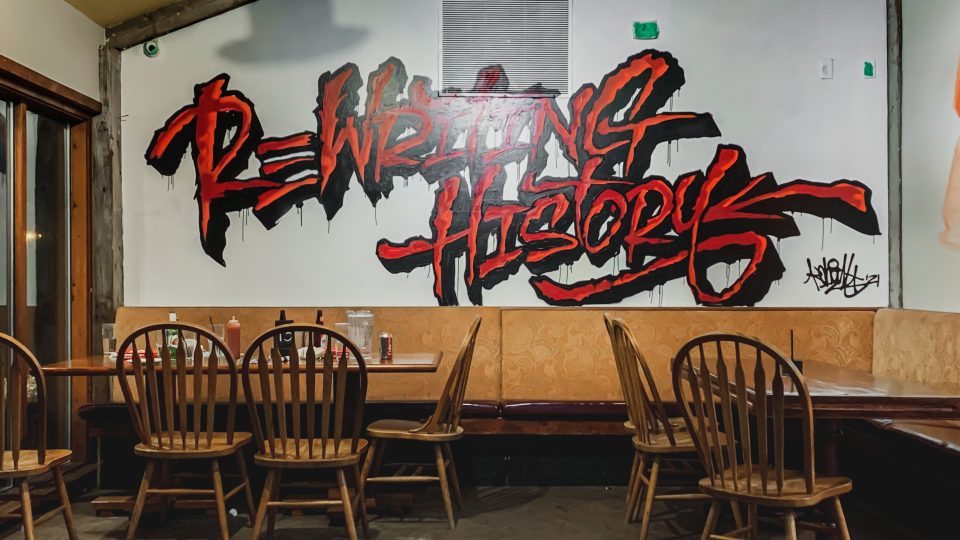September 30th marks Canada’s National Day for Truth and Reconciliation. Also widely known as Orange Shirt Day, September 30th commemorates the residential school experience, to witness and honour the healing journey of the survivors and their families, and commit to the ongoing process of reconciliation. For all non-Indigenous individuals living in, and businesses operating in Canada, this day serves as a critical moment for each of us to deepen our understanding of Canada’s colonial history and commit to playing an active role in Reconciliation.
Over the past two years communities across Canada have been grappling with the lasting and compounding effects of a global pandemic. Technology is playing an increasingly crucial role in keeping us connected, but systemic barriers continue to prevent many communities from fully accessing the benefits of Canada’s growing innovation economy. On top of this fact, while the pandemic’s effects have created ongoing challenges for most of the world’s industries, tech sectors globally have thrived and grown. Microsoft Vancouver is no exception. We have grown as an anchor employer in British Columbia, and as our presence grows so does our commitment to Reconciliation. In today’s blog post we’re outlining the actions Microsoft Vancouver is taking from now through 2023 to address Truth and Reconciliation (TRC) Call to Action #92 – Business and Reconciliation.
Call to Action #92 asks the corporate sector in Canada to build respectful relationships with Indigenous communities and organizations, ensure Indigenous peoples in Canada have equitable access to jobs, training and education opportunities in the corporate sector and provide education for our own staff on Canada’s colonial history and reconciliation efforts today. Taken directly from the TRC’s Final Report Summary – ‘reconciliation is about establishing and maintaining a mutually respectful relationship between Indigenous and non-Indigenous peoples in this country. For that to happen, there must be an awareness of the past, acknowledgement of the harm that has been inflicted, atonement for the causes and action to change behaviour.’
Microsoft Vancouver’s reconciliation efforts are informed by our partnership with the First Nations Technology Council and our participation in the Moving Beyond Inclusion – a pilot project designed decolonizing corporate systems and transform the innovation, technology, and technology-enabled sectors through actions grounded in Reconciliation with an Indigenous lens. The First Nations Technology Council (FNTC) is an Indigenous-led not-for-profit working to ensure that Indigenous peoples across British Columbia have full and equitable access to the tools, training, and support to maximize the opportunities presented by technology and innovation. The Moving Beyond Inclusion (MBI) pilot seeks to collaboratively identify solutions to the barriers for Indigenous talent to access opportunities and/or feel culturally safe at Microsoft. Microsoft Vancouver signed onto MBI in 2021 alongside local partners SAP Canada, PageFreezer, and Bench Accounting.
Over the past year, FNTC conducted an in-depth organizational assessment of Microsoft’s policies and procedures surrounding recruiting, hiring and employee experience in Vancouver and Canada. Learnings from the assessment informed a Roadmap Report and set of recommendations. Focus areas include educating our workforce on Indigenous history, cultures and issues in Canada, foundational HR policy, and process design work to increase recruitment, retention, advancement, and positive experiences of Indigenous Peoples at Microsoft. It also calls out the development of strategies to support Indigenous communities through corporate social responsibility activities. Ultimately, our goal is to create an environment that makes space for Indigenous worldviews, culture, and thought leadership in all areas of Microsoft’s work as we continue to expand in BC’s technology ecosystem.
The roadmap outlines recommended actions, but it’s up to us to set priorities. We’ve identified four attainable actions for 2023. We will 1) incorporate a visual land acknowledgement into each Vancouver campus site, 2) create a relevant cultural awareness and safety training session for recruiters and hiring managers, 3) deliver a financial campaign for employees to engage with during our company-wide giving month, and 4) pilot an Indigenous apprenticeship program with two core engineering teams.
As we move from assessment to action, we are grateful for FNTC’s partnership, and for the support provided by the MBI Roadmap. We also recognize that with technology at the centre of economic recovery and development, reconciliation is of the utmost importance and we must remain accountable. This is true for Microsoft in Vancouver, and for all businesses within BC’s technology sector at large. Our impact is stronger, longer lasting, and more effective when our actions are aligned.




